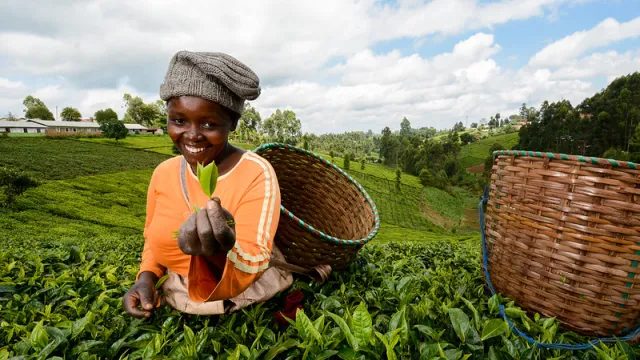Kenya pioneers Africa's first climate adaptation loan system

Kenya pioneers Africa's first climate adaptation loan system
Kenya is pioneering Africa's first climate adaptation credit system that seeks to benefit investors in the country's agriculture sector who's grappling with changing weather patterns.
The credit system dabbed ADAPTA has launched its first phase that has received US$1.5 million (Kes167 million) in funding from the Bill & Melinda Gates Foundation.
ADAPTA seeks to develop an innovative loan underwriting system that incorporates agricultural technologies and climate-smart agriculture.
“Unless we mobilize large pools of capital for climate adaptation, we will not reach the small producers and agri-SMEs that are on the front lines of climate change and will be hit the hardest," said ADAPTA's Principal, German Vegarra.
Adapta will make use of climate scoring algorithms to help change how banks and investors assess risks in agricultural investments with a view to unlock financing for farmers and agri-based SMEs.
These innovations will be developed in collaboration with the Alliance of Bioversity International and CIAT, part of the largest global network on agriculture research—CGIAR.
Agriculture represents roughly 20.4 per cent of Kenya's GDP and provides jobs to about 60 per cent of the nation's rural population while accounting for over 50 per cent of exports.
Read also: Kenya capital markets smaller in a rebased economy
However, with less than 5 per cent of the total lending going to the sector, the potential to apply and scale climate-smart agriculture technologies to enhance the climate resilience of agriculture value chain is limited.
For example, a recent study projects that optimal conditions for growing tea in Kenya will be reduced by 26 per cent by 2050 owing to adverse impact of climate change.
Changing weather patterns such as rising temperatures, droughts, and frosts are set to affect tea farming in Kenya.
Further, changes in pests and diseases also threaten to drastically cut tea production.
Over half a million small-scale farmers in Kenya depend on tea for their livelihoods.
ADAPTA's climate-smart banking approach is billed to aid adaptation in various agriculture value chains in Kenya, including the tea farming.
Partnering with the Alliance of Bioversity International and CIAT and its flagship climate project for Africa (AICCRA), ADAPTA's first phase focuses on developing and testing a Climate-Smart Module (CSM) and an agriculture risk management framework to address adaptation finance barriers.
The CSM will leverage on satellite-derived and other data sets on vegetation, soils, hydrology, climate, energy, and water efficiency, including social and gender dimensions, to assess risk and identify adaptation options within value chains.
ADAPTA is working with primary producers and agri-SMEs to assess their climate change risks and resilience and embed an adaptation plan into their growth strategies.
ADAPTA is also partnering with USAID's Kenya Investment Mechanism to mobilize local financial advisors and strengthen their sustainable finance expertise, a service in great demand.
"We hope ADAPTA's CSM can transform sustainable finance the same way credit scores and credit ratings transformed consumer and corporate finance,” Vegarra added.
Juan Lucas Restrepo, the Director General of the alliance said, “Science and innovation can help address some of the main bottlenecks currently reducing appetite for investing into agriculture such as lack of robust data on risks and the transaction costs associated with due diligence, technical assistance, and monitoring.”
ADAPTA plans a global phase two in 2023 focusing on Africa, Asia, and Latin America.



